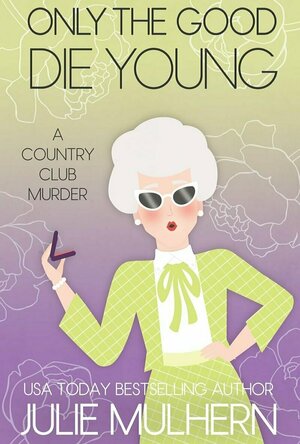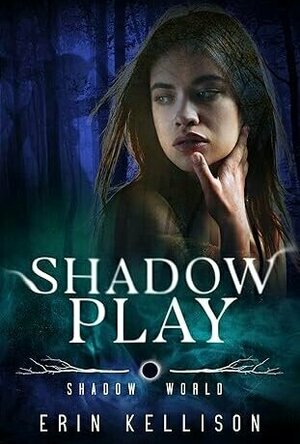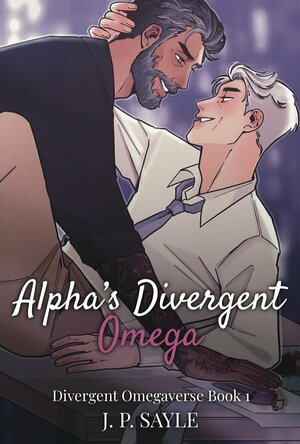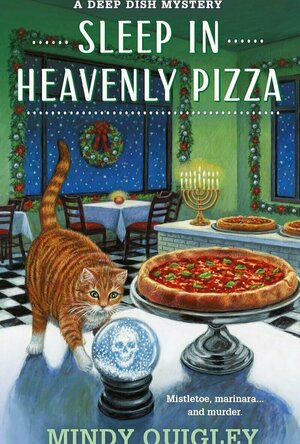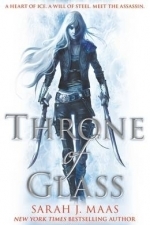Search
Search results
Lyndsey Gollogly (2893 KP) rated The Black Candle in Books
May 18, 2024
99 of 220
Book
The Black Candle
By Catherine Cookson
⭐️⭐️⭐️⭐️
Bridget Dean Mordaunt was a woman of consequence in her own part of the world. Inheriting her father's businesses at the age of nineteen, by the time she was twenty-three in 1880, she was running them as confidently as any man. Yet the path destiny required her to follow was not an easy one. Her feckless cousin Victoria became infatuated with Lionel Filmore, the fortune-hunting elder son of an old but impoverished family living in the decayed grandeur of Grove House. Bridget had no illusions about Lionel, but Victoria's happiness was paramount to her. So a pattern began to form that would shape the lives of generations to come, a pattern of some good and some great evil, but all of it inexorably linking Bridget ever more closely with the Filmores and their house.
Catherine Cooksons books always bring out the emotions a whole range and this one does it best from sympathy to anger with some tears thrown in. This is one of my favourites.
Book
The Black Candle
By Catherine Cookson
⭐️⭐️⭐️⭐️
Bridget Dean Mordaunt was a woman of consequence in her own part of the world. Inheriting her father's businesses at the age of nineteen, by the time she was twenty-three in 1880, she was running them as confidently as any man. Yet the path destiny required her to follow was not an easy one. Her feckless cousin Victoria became infatuated with Lionel Filmore, the fortune-hunting elder son of an old but impoverished family living in the decayed grandeur of Grove House. Bridget had no illusions about Lionel, but Victoria's happiness was paramount to her. So a pattern began to form that would shape the lives of generations to come, a pattern of some good and some great evil, but all of it inexorably linking Bridget ever more closely with the Filmores and their house.
Catherine Cooksons books always bring out the emotions a whole range and this one does it best from sympathy to anger with some tears thrown in. This is one of my favourites.
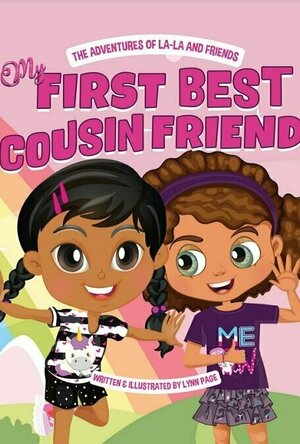
My First Best Cousin Friend
Book
A new children's books about cousins for kids! Your imagination will soar and inspire your...
children's book
Lyndsey Gollogly (2893 KP) rated Dirty Heads in Books
Jan 5, 2024
3 of 220
Kindle
Dirty Heads
By Aaron Dries
⭐️⭐️⭐️⭐️
The story of a boy who dreamed of becoming a man… But dreamed up a monster instead
You’re on the run. Marked. Don’t think about the kid you used to be when you’re homeless and dumpster-diving in the rain. Just eat whatever you find to keep your engine full. Because the shadow with too many teeth wants you tired.
You’re easier to catch when you’re tired.
It has hunted you since the summer of 1994, back when we confessed who we were through mixtapes. When every movie at the video store had dirty heads. You were thirteen and thought you knew who you were. Only the shadow with too many teeth knew you better. It still does. And it won’t stop. Not until you come home.
Back to where it all began.
I’ve never read anything like it. It was just one of those books where you are shook to the core but can’t stop reading. So so good. This was so brilliantly written.
Kindle
Dirty Heads
By Aaron Dries
⭐️⭐️⭐️⭐️
The story of a boy who dreamed of becoming a man… But dreamed up a monster instead
You’re on the run. Marked. Don’t think about the kid you used to be when you’re homeless and dumpster-diving in the rain. Just eat whatever you find to keep your engine full. Because the shadow with too many teeth wants you tired.
You’re easier to catch when you’re tired.
It has hunted you since the summer of 1994, back when we confessed who we were through mixtapes. When every movie at the video store had dirty heads. You were thirteen and thought you knew who you were. Only the shadow with too many teeth knew you better. It still does. And it won’t stop. Not until you come home.
Back to where it all began.
I’ve never read anything like it. It was just one of those books where you are shook to the core but can’t stop reading. So so good. This was so brilliantly written.
Mark @ Carstairs Considers (2470 KP) rated Only the Good Die Young in Books
May 7, 2024
It Was a Fall, Wasn’t It?
This is a short novella that is set back between the first two books. While Ellison and her daughter are off in Europe, Ellison’s mother, Frances, gets involved in a mystery. When she goes with one of her friends to check on the friend’s mother-in-law, they find the woman dead in her bedroom. But it couldn’t be murder. Frances doesn’t get involved in murder. The woman hit her head in a fall, right? Right?
I found Frances’s horror at getting caught up in the case to be funny. I also liked the fact that we got to know her better, something I definitely needed. The rest of the characters aren’t super well developed. Likewise, the mystery is a bit simple, but it kept my interest and reached a great climax. The thing to keep in mind is that this is a novella, and I read it in about an hour. As long as they remember the length, fans of the series will be happy with this story.
I found Frances’s horror at getting caught up in the case to be funny. I also liked the fact that we got to know her better, something I definitely needed. The rest of the characters aren’t super well developed. Likewise, the mystery is a bit simple, but it kept my interest and reached a great climax. The thing to keep in mind is that this is a novella, and I read it in about an hour. As long as they remember the length, fans of the series will be happy with this story.
Merissa (13681 KP) rated Shadow Play (Shadow World Novella #2) in Books
Feb 26, 2024
SHADOW PLAY is the second in the Shadow World Novellas series and we continue with Cam and Ellie. They are called to rescue a young boy who has been taken in Twilight, a changeling in his place.
I am loving Ellie and Cam. They work so well as a team and yet they still have their issues. Let's face it, they've not been together long, and with Ellie's Shadow - it takes the meaning of a love triangle to a whole new level.
There is something new to be learnt about Ellie's Shadow in every novella, as well as Ellie herself. The detail is superb and clearly shows the difference between the 'normal' world and Twilight. Quick-paced and full of action, the ending leaves you wanting the next book immediately. Definitely recommended by me.
** same worded review will appear elsewhere **
* A copy of this book was provided to me with no requirements for a review. I voluntarily read this book; the comments here are my honest opinion. *
Merissa
Archaeolibrarian - I Dig Good Books!
Feb 26, 2024
I am loving Ellie and Cam. They work so well as a team and yet they still have their issues. Let's face it, they've not been together long, and with Ellie's Shadow - it takes the meaning of a love triangle to a whole new level.
There is something new to be learnt about Ellie's Shadow in every novella, as well as Ellie herself. The detail is superb and clearly shows the difference between the 'normal' world and Twilight. Quick-paced and full of action, the ending leaves you wanting the next book immediately. Definitely recommended by me.
** same worded review will appear elsewhere **
* A copy of this book was provided to me with no requirements for a review. I voluntarily read this book; the comments here are my honest opinion. *
Merissa
Archaeolibrarian - I Dig Good Books!
Feb 26, 2024
Merissa (13681 KP) rated Alpha's Divergent Omega (Divergent Omegaverse #1) in Books
Aug 5, 2025
ALPHA'S DIVERGENT OMEGA is a short introduction into the world of the Divergent Omegaverse.
Derick and Lane went against everyone, including their families, to marry each other and build up Starling Enterprises into 'big business'. They have eight sons, five of whom were adopted when their families didn't want them. You don't know much about the sons, which makes perfect sense as their stories are still to come.
What comes across loud and clear is the love and passion still between Derick and Lane, and the love they have for their boys. Certain changes make it clear it's time for them to retire, but they'll do it on their terms!
I look forward to the full-length stories in this series, getting to know the brothers better, and hopefully seeing more of Derick and Lane too.
** Same worded review will appear elsewhere. **
* A copy of this book was provided to me with no requirements for a review. I voluntarily read this book; the comments here are my honest opinion. *
Merissa
Archaeolibrarian - I Dig Good Books!
Aug 5, 2025
Derick and Lane went against everyone, including their families, to marry each other and build up Starling Enterprises into 'big business'. They have eight sons, five of whom were adopted when their families didn't want them. You don't know much about the sons, which makes perfect sense as their stories are still to come.
What comes across loud and clear is the love and passion still between Derick and Lane, and the love they have for their boys. Certain changes make it clear it's time for them to retire, but they'll do it on their terms!
I look forward to the full-length stories in this series, getting to know the brothers better, and hopefully seeing more of Derick and Lane too.
** Same worded review will appear elsewhere. **
* A copy of this book was provided to me with no requirements for a review. I voluntarily read this book; the comments here are my honest opinion. *
Merissa
Archaeolibrarian - I Dig Good Books!
Aug 5, 2025
Mark @ Carstairs Considers (2470 KP) rated Sleep in Heavenly Pizza in Books
Dec 18, 2024 (Updated Dec 18, 2024)
Delilah’s Friends and Family are in Deep Dish
When Delilah and the staff at her restaurant cater a combined Hanukkah and Christmas dinner, Delilah is surprised to run into some family she didn’t know were in town. But the bigger surprise comes the next day when the body of one of the guests is found in a snow pile created for the snow sculpting contest. With her family and friends as the prime suspects, Delilah jumps in to clear them. But what are they hiding?
I always enjoy reading holiday books during December, and this one gave me plenty of Christmas vibes while also including Hanukkah, which was a great touch. The mystery unfolded a little differently, but still pulled me in and kept me turning the pages until I reached the logical climax. Meanwhile, the characters shine, with some nice growth for them and their relationships. There’s plenty of talk about food, and the four recipes at the end sound good. No matter when you pick up this book, you’ll find it delicious.
I always enjoy reading holiday books during December, and this one gave me plenty of Christmas vibes while also including Hanukkah, which was a great touch. The mystery unfolded a little differently, but still pulled me in and kept me turning the pages until I reached the logical climax. Meanwhile, the characters shine, with some nice growth for them and their relationships. There’s plenty of talk about food, and the four recipes at the end sound good. No matter when you pick up this book, you’ll find it delicious.
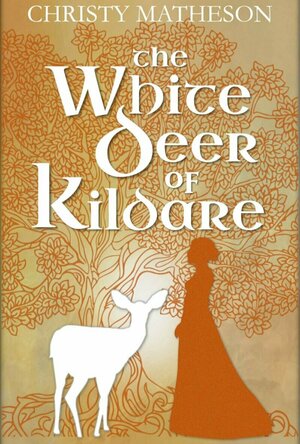
The White Deer of Kildare (The Castle in Kilkenny: Fairy Tales #2)
Book
A Winter Solstice fairy tale adventure All Maura wants is a peaceful winter holidays in her Irish...
Time-Slip Fantasy
Kaysee Hood (83 KP) rated Throne of Glass in Books
Jun 27, 2017
Badass female (1 more)
Mystery
She's beauty and grace. She's not sorry at all about your face.
There are quite a few people who look down on Celaena Sardothien as a character because she is a badass woman who is confident in her appearance. She thinks about how she presents herself to the world and has no qualms about declaring her beauty. She comes off as vain, but I found it as a relief after reading so many books where a female character did not realize her worth for whatever reason. It was a nice change to go from a mousy girl who does not believe in herself to Celaena, who does not always believe in herself, but at least knows she is on top of the world.
Throne of Glass has an array of characters who have a purpose. Each one mentioned plays a part in some manner. It may not be in this first book of the series, but they all play a part at some point. No one is unimportant. They weigh on the events unfolding even if it is the smallest of details. They aren't there are fillers, which is wonderful.
As for the very obviously love triangle between Celaena, Chaol, and Dorian I was fine with it. Even if it was a focus, their triangle did not keep from the plot. It was not a distraction and thrown in their for "romance". It actually plays a part for later in the series. In a way, I felt it helped progress the story along and did not keep us from the main focus: rid the kingdom of evil.
Throne of Glass has an array of characters who have a purpose. Each one mentioned plays a part in some manner. It may not be in this first book of the series, but they all play a part at some point. No one is unimportant. They weigh on the events unfolding even if it is the smallest of details. They aren't there are fillers, which is wonderful.
As for the very obviously love triangle between Celaena, Chaol, and Dorian I was fine with it. Even if it was a focus, their triangle did not keep from the plot. It was not a distraction and thrown in their for "romance". It actually plays a part for later in the series. In a way, I felt it helped progress the story along and did not keep us from the main focus: rid the kingdom of evil.
Rachel King (13 KP) rated Thorn Queen (Dark Swan, #2) in Books
Feb 11, 2019
I liked this book more than the first in the series, Storm Born, simply because the complaints I had about the first book were answered to in this one. I thought that Dorian was by far a better match for Eugenie than Kiyo, and really, Kiyo just becomes a major wimp in this book. Even his ability in the bedroom is shown up by Eugenie's mere memories of Dorian - and that's just sad.
The second complaint I had in the first book is also answered for - but definitely not in a good way, as it was about how Richelle Mead wrote Eugenie's reactions to the multiple rape attempts made on her. This book took things much further and really drew an emotional reaction from me. I really hope that the next two books don't revisit this issue. Moving on.
Dorian is nearly perfect in every way in this book, answering to Eugenie's many sensitivities and internal struggles, as well as exacting justice when Kiyo was too cowardly to do the deed. Honestly, I'm at the point where if Dorian says to do it, Eugenie should do it. After all, I loved that Dorian tricked Eugenie into claiming Aeson's kingdom, as she genuinely cares about and wants to help her people just as much as she would want to in the human world.
Oh yes, and some of the other quirks of this plot were quite enjoyable, such as watching Eugenie gain greater access to her storm abilities, as well as her angsty half-sister Jasmine coming to her aid at the end. I look forward to reading the next installment, Iron Crowned.
The second complaint I had in the first book is also answered for - but definitely not in a good way, as it was about how Richelle Mead wrote Eugenie's reactions to the multiple rape attempts made on her. This book took things much further and really drew an emotional reaction from me. I really hope that the next two books don't revisit this issue. Moving on.
Dorian is nearly perfect in every way in this book, answering to Eugenie's many sensitivities and internal struggles, as well as exacting justice when Kiyo was too cowardly to do the deed. Honestly, I'm at the point where if Dorian says to do it, Eugenie should do it. After all, I loved that Dorian tricked Eugenie into claiming Aeson's kingdom, as she genuinely cares about and wants to help her people just as much as she would want to in the human world.
Oh yes, and some of the other quirks of this plot were quite enjoyable, such as watching Eugenie gain greater access to her storm abilities, as well as her angsty half-sister Jasmine coming to her aid at the end. I look forward to reading the next installment, Iron Crowned.

